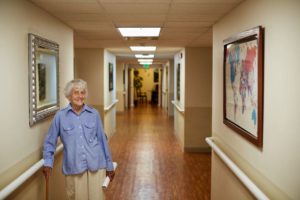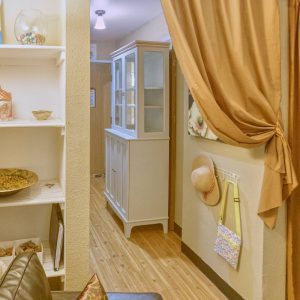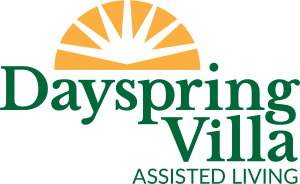For many older adults, making ends meet can be challenging. Some studies estimate that 25 percent of Medicare recipients spend more than a third of their income on healthcare expenses. With rising inflation rates, Medicaid coverage can be a godsend for older adults on a fixed income. While there are federal minimums and maximums in determining eligibility for coverage, there is flexibility among states in setting financial guidelines for Medicaid.
What follows are some of the Medicaid basics, the processing steps, and what else seniors should know about this coverage.
Understanding Medicaid Coverage for Older Adults
1. What are the Medicaid Processing Steps?
For older adults who qualify for Medicaid financially and who meet other eligibility requirements, the program may help pay for long-term care services such as nursing home care and Home- and Community-Based Services (HCBS). Medicaid can also help low-income seniors with other medical expenses such as Medicare premiums, copayments, and deductibles.
To apply for Medicaid, seniors can contact their state Medicaid agency. Then fill out an application through the Health Insurance Marketplace.
There are three resources available for help with applying for Medicaid:
- The National Association of Area Agencies on Aging website is a good first step in learning more about the Medicaid application process.
- The official U.S. Government site for Medicare provides information on Medicaid in each state.
- Helping Hands Consulting, LLC specializes in assisting individuals in obtaining long-term care benefits.
2. What Are the Steps When Determining Eligibility for Medicaid?
A common misperception about Medicaid is that it provides a health insurance program only for low-income people. But Medicaid also helps millions of people of all ages who have disabilities and need long-term services and supports (LTSS).
Financial Eligibility
 The Affordable Care Act updated income requirements for Medicaid based on modified adjusted gross income (MAGI), making it easier to apply and enroll in the appropriate program. MAGI determines financial eligibility for Medicaid, Children’s Health Insurance Program (CHIP), and premium tax credits and cost-sharing reductions available through the Marketplace.
The Affordable Care Act updated income requirements for Medicaid based on modified adjusted gross income (MAGI), making it easier to apply and enroll in the appropriate program. MAGI determines financial eligibility for Medicaid, Children’s Health Insurance Program (CHIP), and premium tax credits and cost-sharing reductions available through the Marketplace.
MAGI determines Medicaid income eligibility for most children, pregnant women, parents, and adults. The MAGI-based approach uses taxable income and tax filing relationships to establish financial eligibility for potential Medicaid recipients.
In some cases, individuals are exempted from the MAGI-based income counting rules, including those who are eligible because of blindness or disability, or are age 65 and older. Medicaid eligibility is generally determined using the income policies of the Supplemental Security Income (SSI) program administered by the Social Security Administration.
Non Financial Eligibility
Individuals must also meet certain non financial eligibility criteria to be eligible for Medicaid. Medicaid beneficiaries are required to be residents of the state where they receive Medicaid. They generally must be U.S. citizens although some lawful permanent residents may also be eligible.
3. How Does Long-Term Medicaid Work?
Medicaid covers the cost of long-term care for seniors and disabled people who meet their state’s eligibility requirements. The two primary Medicaid programs from which one can receive this type of care are nursing home medicaid and Home-and Community-Based Services (HCBS).
Nursing Home Medicaid


Home and Community-Based Services


Medicaid can provide a variety of health and human services in the home and community. HCBS programs benefit the community and individuals served in myriad ways. These programs typically fall into two categories: health services and human services. HCBS programs vary, with some offering a combination of both health and human services but not all offer all services included in each category.
Health services provide medical needs, such as the following:
- Case management
- Dietary management by a registered dietician
- Durable medical equipment
- Hospice care
- Occupational, speech, and physical therapies
- Personal care
- Skilled nursing care
Human services support daily living activities, such as the following:
- Adult daycares
- Financial services
- Home repairs and modifications
- Home safety assessments
- Home-delivered meal programs
- Homemaker and chore services
- Legal services, such as help preparing a will
- Personal care (dressing, bathing, toileting, eating, transferring to or from a bed or chair, etc.)
- Transportation and access
4. How Long Does the Medicaid Process Take?
Once an individual is established as eligible for Medicaid, coverage is effective almost immediately—either on the date of the application or on the first day of the month of the application. Coverage stops at the end of the month when a person is no longer eligible for the program. Benefits may be covered retroactively for up to three months before the month of the application—if the individual would have been eligible during that period.
Most older Americans will one day need long-term services and support. Many of those will incur costs that exceed their ability to pay out of pocket. Medicaid can provide a critical safety net for covering the high costs of LTSS.

